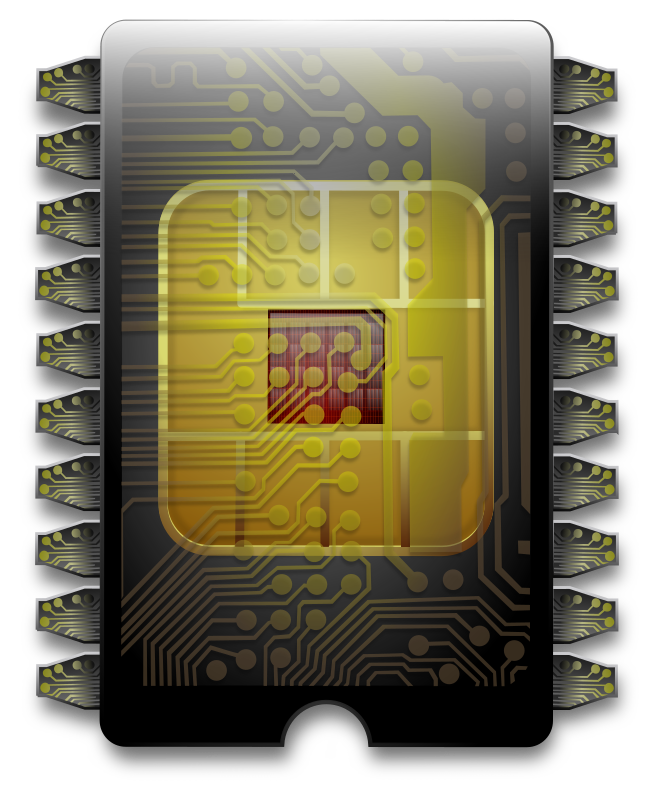What Do You Need to Start a Career in Computer Science?
Thinking of starting a career in computer science? It’s a great choice in our tech-heavy world. The need for computer scientists is booming. There are more than 50,000 computer scientist job ads on LinkedIn. To enter this exciting industry, you must have the right computer science qualifications and skills.
The U.S. Bureau of Labor Statistics says you’ll likely need a bachelor’s degree in computer science or something similar for most jobs. For higher positions, a master’s degree is often preferred. The job market is growing fast, with a 22% increase expected from 2020 to 2030. Plus, the average salary for a computer scientist is around $82,477 a year.
As tech keeps changing, knowing the key skills for computer scientists is essential. You need hard skills like coding and analysing data. Soft skills, such as talking well and solving problems, are just as important. You can get these skills from universities or online and part-time courses. Starting a career in computer science is definitely worth considering.
Understanding Computer Science: An Overview
Computer science covers a broad area that includes both theory and practical tasks. It deals with designing hardware and software, understanding artificial intelligence, and programming. It also covers specialised fields like computer graphics. These aspects combined help us grasp what computer science is all about.
What is Computer Science?
This discipline focuses on using algorithms, structures for data, and ways to solve problems. It heavily relies on maths. This helps professionals create new models for computing and solve tricky problems. This knowledge is crucial for inventing and enhancing technology.
Differences Between Computer Science and Information Technology
Computer science and information technology are quite different. Computer science explores the creation of software and the theory behind algorithms. On the other hand, information technology is about managing and processing data in systems. This distinction is vital for students picking a career path.
Importance of Computer Science in Today’s World
Computer science is key in many areas like healthcare, finance, and education. Computer scientists drive tech forward, sparking innovation and boosting efficiency across sectors. With technology’s growing role in our lives, there’s a high demand for experts in the field. This means lots of job potential.
Interested in diving deeper into computer science? Michigan Tech has great resources and programmes for study. It showcases the wide range of opportunities in this exciting area.
Essential Educational Qualifications
If you want to work in computer science, knowing what qualifications you need is key. A strong education gives you the skills and knowledge that employers look for. This lets graduates tackle the many challenges in this fast-changing field.
Minimum Requirements: Bachelor’s Degree
Most jobs in computer science ask for at least a bachelor’s degree. This should be in computer science or a related area. The degree covers important topics like algorithms, programming, and system basics. As more people become interested, the size of computer science programs has grown a lot. This shows the increasing need for skilled professionals.
Importance of Higher Education
Getting a Master’s or Ph.D. can really help your career. Jobs that need a lot of skill often want applicants with advanced degrees. The Computing Research Association shows that 60% of Ph.D. grads in computer science work in the industry. This highlights the importance of higher education in staying ahead.
Alternative Learning Paths: Online and Part-Time Degrees
Nowadays, online and part-time degrees make learning more reachable. You can study from home and manage your work and personal life. This suits many types of learners. It allows them to gain key skills in various ways. This includes coding boot camps and courses from groups like IEEE Computing Society and ACM.

What You Need for Computer Science: Skills and Competencies
To excel in computer science, you need a mix of technical skills and people skills. The skills for computer scientists include hard skills for technical know-how and soft skills to improve teamwork and communication. Knowing these skills helps build a strong career.
Hard Skills: Key Technical Knowledge
For success in computer science, hard skills are vital. They include:
- Knowledge of programming languages like Python, Java, and C++ is crucial, with most IT jobs requiring these skills.
- Being good at data analysis is also important, as many employers want this ability.
- Understanding software development is key for many roles, showing the need for software skills and problem-solving.
- Math skills are a must in nearly all job descriptions, showing how vital they are for solving problems.
- Being detailed in coding is highly valued, with most employers looking for this trait.
Soft Skills: Communication and Problem Solving
Soft skills are just as important for working well with others. These include:
- Good communication skills are needed, as most IT jobs involve explaining project details.
- Being able to solve problems and analyse situations is crucial, especially for code-related tasks.
- Managing time effectively is necessary to stay productive and meet tight deadlines.
- Being able to work as part of a team is essential, as cooperation is highly valued.
- Creativity is encouraged for coming up with new solutions, which many employers find appealing.
The Role of Internships in Gaining Experience
Internships are incredibly important. They offer hands-on experience and chances to meet people that can lead to jobs. By doing internships, aspiring computer scientists can apply what they’ve learned. This makes them stand out in the job market.
Career Specialisations within Computer Science
The field of computer science has many career paths. Each one focuses on different specialisations. This helps people with various interests to find their place in this exciting field. Understanding these paths helps you see the opportunities and new jobs that are always appearing.
Potential Career Paths: Software Development, Data Science, and More
Computer science covers many roles across different sectors. Here are some examples:
- Software Development: About building applications and systems.
- Data Science: Uses data analysis for better decisions.
- Cybersecurity: Protects against online threats.
- Software Engineering: Deals with creating and maintaining software.
- Technical Writing: Writes guides for software and systems.
- System Analysis: Works on making computer systems more efficient.
Careers in computer science can pay well, often over $145,000 a year. Each job offers paths for moving forward, depending on your skills and interests in tech.
Emerging Roles and Future Job Market Trends
New technology brings new job opportunities. Here are some of the latest roles:
- Machine Learning Engineers: They create self-improving algorithms.
- Data Analysts: They find insights in data for business plans.
The demand for these new jobs is growing fast. By 2032, jobs in computer and information science will grow by 23%. This rate is much higher than most other jobs. The computer science field is known for its strong job market and low unemployment rates. This shows it is a stable and promising field for work.
Pursuing Certifications to Advance Your Career
The computer science field is always changing. This makes certifications very important for career growth. They prove your skills and show you are committed to learning more. Keeping up with studies helps you get better jobs and qualifications.
Popular Certifications in Computer Science
There are many important certifications in computer science. They cover different areas of technology. Here are some of them with their costs and requirements:
| Certification | Cost | Prerequisites |
|---|---|---|
| Cisco CCNA | £300 | Recommended 1 year of experience |
| Cisco CCIE Data Center | Core: £400, Lab: £1,600 – £1,900 | Experience recommended |
| CompTIA A+ | £246 per exam | 9-12 months hands-on experience recommended |
| EC-Council CEH | £950 – £1,199 | 2 years in information security recommended |
| Microsoft Certified: Azure Data Fundamentals | £99 | No prior experience required |
The Value of Continuous Learning and Development
It’s critical to stay current with new technology trends in computer science. Continuous learning is key, not only to keep your skills fresh but also to open new career opportunities. Those who invest in learning and certs can improve their pay and job happiness. This shows employers you’re dedicated and can keep up in a fast-paced market.
Conclusion
As we wrap up our look into computer science careers, we see future computer scientists face a world of learning and practice. To start, they need a strong base, usually a Bachelor’s degree. Plus, they should keep learning through certifications. This mix sets the stage for a great start in their careers.
It’s crucial to get skilled in both technical and soft areas. Knowing programming and how to manage systems is a must. But, being able to solve problems and talk well is just as important. Also, internships offer key real-world skills, connecting classroom lessons to real jobs.
This field opens doors to many paths, like creating software or exploring data science. For those entering the scene, remember: always be learning, be ready to adapt, and seek out direct experience. These steps are vital as you build your place in this fast-changing and thrilling sector.
FAQ
What qualifications do I need to pursue a career in computer science?
To start a career in computer science, you’ll need at least a Bachelor’s degree in this field or one closely related. For higher positions, you might need a Master’s or even a Ph.D.
Can I study computer science online or part-time?
Yes, you can. There’s a wide range of online and part-time courses. These allow you to study while you manage other things in your life.
What are the essential hard skills needed for a computer scientist?
Important skills include knowing programming languages like Python, Java, and C++. You should also be good at data analysis, machine learning, and using the cloud.
Are soft skills important in computer science?
Definitely. Skills like good communication, thinking analytically, being detail-oriented, and working well with others are key. They help when working in teams or explaining complex ideas.
How valuable are internships when starting a career in computer science?
Internships are very valuable. They give you hands-on experience and help you make connections. Many times, they can lead directly to a job in the field.
What career paths are available within the computer science field?
Jobs in this field vary widely. They include software development, data science, cybersecurity, software engineering, and technical writing, among others.
What emerging roles should I be aware of in the computer science job market?
Technology keeps changing, so new jobs like machine learning engineers, data analysts, and cybersecurity specialists are becoming more common. These areas are growing fast.
What certifications are beneficial for computer science careers?
Getting certifications like the Certified Information Systems Security Professional (CISSP), CompTIA Security+, and ISACA Certified Information Systems Auditor can really help your career.
Why is continuous learning important in computer science?
Because technology changes quickly, you need to keep learning. This can lead to better job chances and a higher salary.















